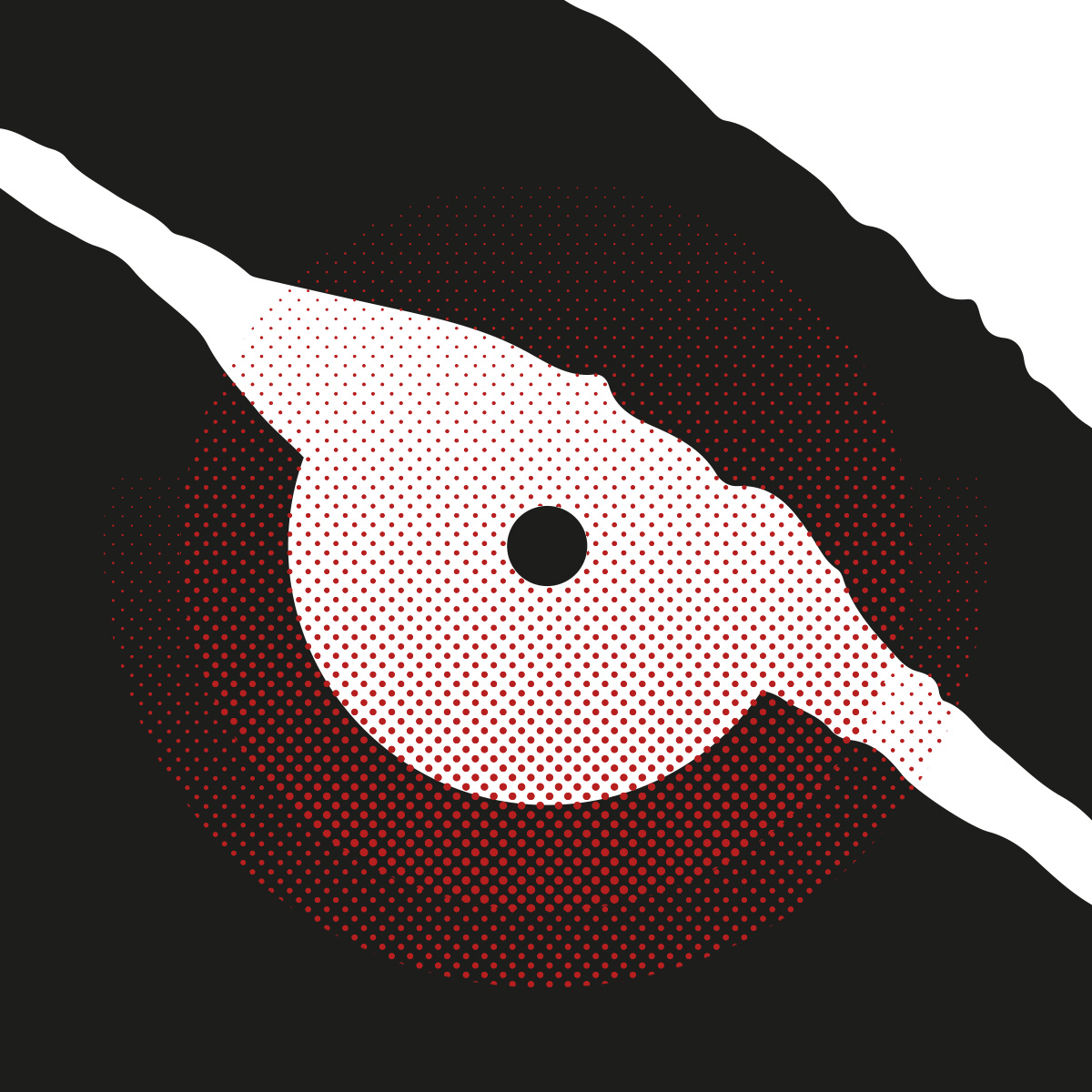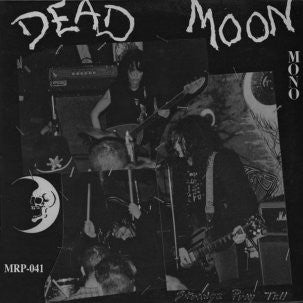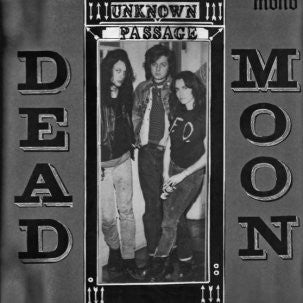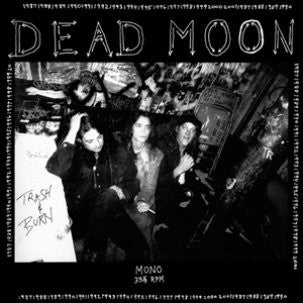
Staubgold
VIVIEN GOLDMAN - Resolutionary (Songs 1979-1982) LP
$44.95
Includes liner notes.
"8.5 - Best new reissue" - Pitchfork
Highly recommended.
Resolutionary (Songs 1979-1982) is one of several compilations released this season to reintroduce some of the women who helped architect post-punk at its magic hour, among them the expansive, two-disc Sharon Signs to Cherry Red and thrilling Subnormal Girls Volume 1. Resolutionary pairs Goldman’s visionary Dirty Washing EP from 1981 with two feminist art-rock songs she wrote and sung in the Flying Lizards, and three by her cosmopolitan, proto-world music duo Chantage. On Resolutionary, you'll find production by John Lydon and percussion from Robert Wyatt, a forefather and fixture of the Rough Trade scene then. Goldman covers Bob Marley’s “Do It Twice” and she collaborates with British punks and musicians from Jamaica and Zaire. Her pop sense is sharp, her lyrics are witty, her voice a full soprano mixed high and clear. Among Resolutionary’s fragmented soundscapes, Goldman sounds as though she’s sung on a theater stage.
Goldman formed Chantage with Eve Blouin, a native of Guinea, while they shared a flat in Paris in the early ‘80s. The soukous guitar lines on these recordings came from Zairean player Jerry Malekani, and Chantage also worked with a violinist named Jancsi Hosszu, a man they first spotted playing at a Hungarian restaurant, who’d never been in a studio before. They found yet another collaborator by going out to All Saints Road and asking, “Who’s the best steelpan player in the area?” (They arrived at a fellow named Bubbles.) The shuffling drama of Chantage’s “It's Only Money” makes it sound like a snippet from a musical—or perhaps if broke, destitute squatters wrote a lost scene from La bohème. It alludes to the desperate predicaments one can get into in order to survive as an artist, and it underscores the unusual relationship artists had with money in that era, a time when squatting communities were alive throughout Europe. “Tu M’Fais Rire” is a rich, chic, strikingly harmonized a capella sung in French, the anti-punk lyric twirling and translating to: “Today people are embarrassed to say they love each other/It's a frightening feeling/But for us, it is bliss.”
Goldman’s deep love of reggae comes out most deliberately on the wondrously bold Chantage recording of “Same Thing Twice,” a slightly renamed version of the 1971 Wailers song “Do It Twice”. It’s more sensitive than your usual rude boy joint, with an infectious lovers-rock sway. Chantage radically recast “Same Thing Twice” and its extremely sensual come-on from a female perspective: “Baby you're so nice,” they harmonize with sheer glee, “I’d like to do the same thing twice!” It’s hot, mellow disposition is heartening and happy, alive with pure joy - their singing seems to melt, and it just makes you smile. The upbeat swing of the horns could be from Return of Django. Chantage push this optimism towards the sun.
Before Chantage, Goldman was a member of avant-garde new wavers the Flying Lizards, who became known for their absurdist cover of the Motown hit “Money (That’s What I Want)” and wacky, conceptual performances—you can watch them playing toy instruments on Top of the Pops, a noble undertaking. Goldman’s two songs, “The Window” and “Her Story,” both appeared on their debut LP in 1979—they are unabashedly feminist, which was rare. “The Window” tells the nightmarish, vivid story of a guy who’s throwing things at the glass, while Goldman hopes that her door’s locked tight: “I don’t want to let him in.../I wish he wasn’t twice my size/Sometimes you fight for the world/Sometimes you fight for yourself.” The groovy “Her Story,” meanwhile, is about the tyranny of history, which feels apt here.
But it’s really the cult Dirty Washing 12” EP “Launderette,” “Private Armies,” and “P.A. Dub” - that makes this reissue so utterly indispensable. In ’81, Dirty Washing came out on Viv’s own label, Window Records, distributed by Rough Trade. While in New York, Goldman walked into the tiny record shop at 99 MacDougal Street and handed over a copy, so the collection got a pressing on the legendary 99 Records. Dirty Washing is a woman building a world.
On Dirty Washing, Goldman orchestrated the ultimate post-punk posse cuts. She asked her friend, George Oban, bassist in the local reggae band Aswad, to jam with her, bringing the resulting tape to fellow reggae connoisseur, John Lydon. When Public Image Ltd. were recording Flowers of Romance, they let Goldman use their downtime in the studio; Keith Levene of Public Image Ltd. played guitar. A wild ensemble of characters floats into the mix, texturing these bohemian songs: spacious percussion from Wyatt, the Raincoats’ classically trained violinist and noted feminist Vicky Aspinall, toy piano maestro Steve Beresford of Flying Lizards, another drummer called Shooz. The now-legendary dub producer Adrian Sherwood mixed them all in a couple hours. Goldman was well-positioned to assemble something epic like this. As Sherwood once put it: “Viv was mates with everybody. She was very friendly, and she decided to make a couple of tunes.”
“Launderette” is a funny and filmic song about a romance sparked among hypnotic washing machines: “I wanted 10 pence for the dryer/Yes, that was how we met/My laundry bag was broken/My clothes were soaking wet/I felt I needed hugging.” And so it goes; her new suitor comes around her flat and stays for weeks and will not leave, and after she “learns to say no”—to take control of her domestic space—she can't even escape him while she’s washing her socks. “Your hair’s all over the bath,” Goldman playfully adds. “You always were untidy.” The wandering, irresistible bass line tells the story, too. You know it’s going to happen again. She does not sound mad.
“Private Armies” is a cut-and-paste collage, a cloud that billows with a communal energy. It is one of the best documents of this era. Its ambient psychedelia is a swirl of reverb and echo, full of booms and crashes and flutters. The drum beat is stoned-sounding, and the bass is cinder-block heavy. Mixed with the raw echo of a sawed violin, the tough clatter is ominous, and the blown-out dub reprise is even heavier. That version later appeared on the 1981 debut from New Age Steppers, the collaboration of Ari Up, Sherwood, and the Pop Group’s Mark Stewart. Near the end, Goldman is sort of rapping.
With so many ideas zipping in and out, it's a small miracle that “Private Armies” remains so engrossingly tuneful. In direct terms, “Private Armies” speaks of Goldman's friends Vernon and Norman, who sat in their car and watched a bunch of skinheads “beat shit out of a person on the pavement/blood everywhere.” Goldman shouts the refrain: “If you can't get a hard-on/Get a gun!” Three and a half decades ago, “Private Armies” evoked the distinct and frustrating absurdity that any person could own a weapon of war, that masculinity should be equated with violence. As Lee “Scratch” Perry once said, dub is where you can “hide from the fuckers.” Such places become scarcer everyday.
The roles of the musician and the critic can often seem opposed. One recalls the Lester Bangs character in Almost Famous advising the budding rock scribe, “You CANNOT make friends with the rock stars,” but—plot twist—Bangs played in bands, too. Goldman brought a reportorial instinct into her music, which is clear from the six-minute audio interview that comes at the end of this reissue, wherein Goldman incisively discusses “Private Armies.” (“Living where we are now,” she says, “people don’t need guns.”) “Private Armies” remains searingly relevant, and so does Goldman. Her uncommon path is inspiring; it is a reminder that there is no path but your own.
- Pitchfork
"8.5 - Best new reissue" - Pitchfork
Highly recommended.
Resolutionary (Songs 1979-1982) is one of several compilations released this season to reintroduce some of the women who helped architect post-punk at its magic hour, among them the expansive, two-disc Sharon Signs to Cherry Red and thrilling Subnormal Girls Volume 1. Resolutionary pairs Goldman’s visionary Dirty Washing EP from 1981 with two feminist art-rock songs she wrote and sung in the Flying Lizards, and three by her cosmopolitan, proto-world music duo Chantage. On Resolutionary, you'll find production by John Lydon and percussion from Robert Wyatt, a forefather and fixture of the Rough Trade scene then. Goldman covers Bob Marley’s “Do It Twice” and she collaborates with British punks and musicians from Jamaica and Zaire. Her pop sense is sharp, her lyrics are witty, her voice a full soprano mixed high and clear. Among Resolutionary’s fragmented soundscapes, Goldman sounds as though she’s sung on a theater stage.
Goldman formed Chantage with Eve Blouin, a native of Guinea, while they shared a flat in Paris in the early ‘80s. The soukous guitar lines on these recordings came from Zairean player Jerry Malekani, and Chantage also worked with a violinist named Jancsi Hosszu, a man they first spotted playing at a Hungarian restaurant, who’d never been in a studio before. They found yet another collaborator by going out to All Saints Road and asking, “Who’s the best steelpan player in the area?” (They arrived at a fellow named Bubbles.) The shuffling drama of Chantage’s “It's Only Money” makes it sound like a snippet from a musical—or perhaps if broke, destitute squatters wrote a lost scene from La bohème. It alludes to the desperate predicaments one can get into in order to survive as an artist, and it underscores the unusual relationship artists had with money in that era, a time when squatting communities were alive throughout Europe. “Tu M’Fais Rire” is a rich, chic, strikingly harmonized a capella sung in French, the anti-punk lyric twirling and translating to: “Today people are embarrassed to say they love each other/It's a frightening feeling/But for us, it is bliss.”
Goldman’s deep love of reggae comes out most deliberately on the wondrously bold Chantage recording of “Same Thing Twice,” a slightly renamed version of the 1971 Wailers song “Do It Twice”. It’s more sensitive than your usual rude boy joint, with an infectious lovers-rock sway. Chantage radically recast “Same Thing Twice” and its extremely sensual come-on from a female perspective: “Baby you're so nice,” they harmonize with sheer glee, “I’d like to do the same thing twice!” It’s hot, mellow disposition is heartening and happy, alive with pure joy - their singing seems to melt, and it just makes you smile. The upbeat swing of the horns could be from Return of Django. Chantage push this optimism towards the sun.
Before Chantage, Goldman was a member of avant-garde new wavers the Flying Lizards, who became known for their absurdist cover of the Motown hit “Money (That’s What I Want)” and wacky, conceptual performances—you can watch them playing toy instruments on Top of the Pops, a noble undertaking. Goldman’s two songs, “The Window” and “Her Story,” both appeared on their debut LP in 1979—they are unabashedly feminist, which was rare. “The Window” tells the nightmarish, vivid story of a guy who’s throwing things at the glass, while Goldman hopes that her door’s locked tight: “I don’t want to let him in.../I wish he wasn’t twice my size/Sometimes you fight for the world/Sometimes you fight for yourself.” The groovy “Her Story,” meanwhile, is about the tyranny of history, which feels apt here.
But it’s really the cult Dirty Washing 12” EP “Launderette,” “Private Armies,” and “P.A. Dub” - that makes this reissue so utterly indispensable. In ’81, Dirty Washing came out on Viv’s own label, Window Records, distributed by Rough Trade. While in New York, Goldman walked into the tiny record shop at 99 MacDougal Street and handed over a copy, so the collection got a pressing on the legendary 99 Records. Dirty Washing is a woman building a world.
On Dirty Washing, Goldman orchestrated the ultimate post-punk posse cuts. She asked her friend, George Oban, bassist in the local reggae band Aswad, to jam with her, bringing the resulting tape to fellow reggae connoisseur, John Lydon. When Public Image Ltd. were recording Flowers of Romance, they let Goldman use their downtime in the studio; Keith Levene of Public Image Ltd. played guitar. A wild ensemble of characters floats into the mix, texturing these bohemian songs: spacious percussion from Wyatt, the Raincoats’ classically trained violinist and noted feminist Vicky Aspinall, toy piano maestro Steve Beresford of Flying Lizards, another drummer called Shooz. The now-legendary dub producer Adrian Sherwood mixed them all in a couple hours. Goldman was well-positioned to assemble something epic like this. As Sherwood once put it: “Viv was mates with everybody. She was very friendly, and she decided to make a couple of tunes.”
“Launderette” is a funny and filmic song about a romance sparked among hypnotic washing machines: “I wanted 10 pence for the dryer/Yes, that was how we met/My laundry bag was broken/My clothes were soaking wet/I felt I needed hugging.” And so it goes; her new suitor comes around her flat and stays for weeks and will not leave, and after she “learns to say no”—to take control of her domestic space—she can't even escape him while she’s washing her socks. “Your hair’s all over the bath,” Goldman playfully adds. “You always were untidy.” The wandering, irresistible bass line tells the story, too. You know it’s going to happen again. She does not sound mad.
“Private Armies” is a cut-and-paste collage, a cloud that billows with a communal energy. It is one of the best documents of this era. Its ambient psychedelia is a swirl of reverb and echo, full of booms and crashes and flutters. The drum beat is stoned-sounding, and the bass is cinder-block heavy. Mixed with the raw echo of a sawed violin, the tough clatter is ominous, and the blown-out dub reprise is even heavier. That version later appeared on the 1981 debut from New Age Steppers, the collaboration of Ari Up, Sherwood, and the Pop Group’s Mark Stewart. Near the end, Goldman is sort of rapping.
With so many ideas zipping in and out, it's a small miracle that “Private Armies” remains so engrossingly tuneful. In direct terms, “Private Armies” speaks of Goldman's friends Vernon and Norman, who sat in their car and watched a bunch of skinheads “beat shit out of a person on the pavement/blood everywhere.” Goldman shouts the refrain: “If you can't get a hard-on/Get a gun!” Three and a half decades ago, “Private Armies” evoked the distinct and frustrating absurdity that any person could own a weapon of war, that masculinity should be equated with violence. As Lee “Scratch” Perry once said, dub is where you can “hide from the fuckers.” Such places become scarcer everyday.
The roles of the musician and the critic can often seem opposed. One recalls the Lester Bangs character in Almost Famous advising the budding rock scribe, “You CANNOT make friends with the rock stars,” but—plot twist—Bangs played in bands, too. Goldman brought a reportorial instinct into her music, which is clear from the six-minute audio interview that comes at the end of this reissue, wherein Goldman incisively discusses “Private Armies.” (“Living where we are now,” she says, “people don’t need guns.”) “Private Armies” remains searingly relevant, and so does Goldman. Her uncommon path is inspiring; it is a reminder that there is no path but your own.
- Pitchfork




